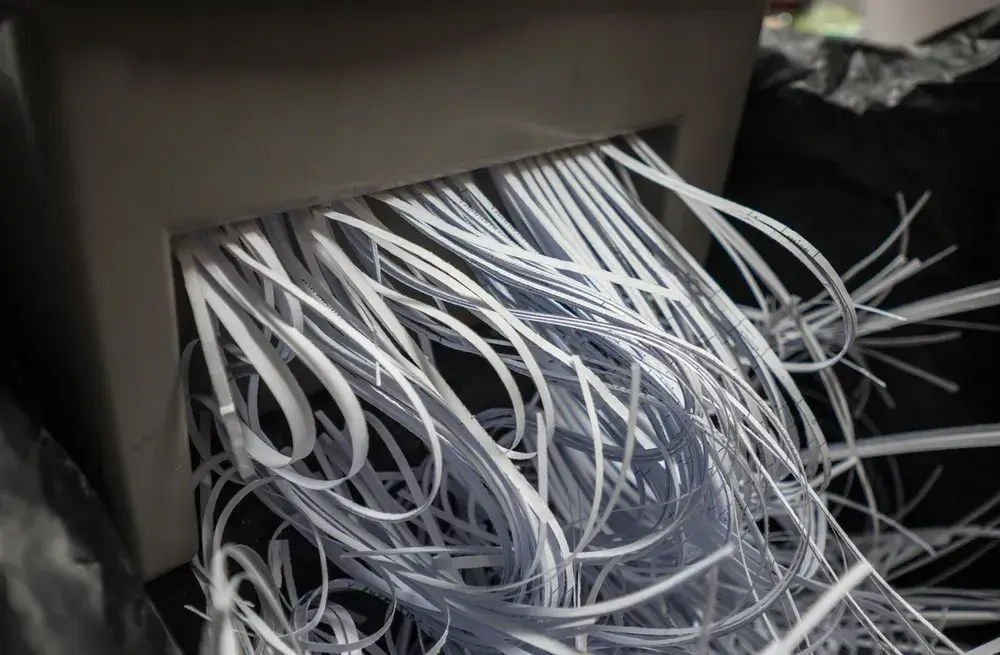Introduction
In an age where data breaches Confidential Documents Disposal and identity theft are on the rise, secure document shredding services have become a non-negotiable necessity for both businesses and individuals. Whether it’s personal information, medical records, or financial reports, disposing of sensitive paperwork carelessly can lead to catastrophic consequences. Confidential document disposal is more than just tossing papers into a recycling bin; it demands professional handling.
With advancements in technology and heightened regulatory scrutiny, on-site shredding solutions and off-site document destruction offer peace of mind, convenience, and compliance. This guide explores comprehensive shredding solutions, breaking down what you need to know to stay secure and eco-friendly.
Importance of Secure Document Disposal
Risks of Improper Document Disposal
Improper disposal can expose sensitive information, making you or your organization vulnerable to identity theft, data breaches, and regulatory penalties. Financial records, HR files, and client documents are goldmines for cybercriminals if not properly destroyed.
- Legal consequences for non-compliance (e.g., HIPAA fines)
- Reputational damage for businesses
- Loss of customer trust
Understanding Secure Shredding
What is secure shredding?
Secure shredding is the process of destroying documents beyond recognition, ensuring that confidential information cannot be reconstructed or misused. It’s conducted by certified shredding companies that adhere to strict industry standards.
Types of Shredding Methods
On-site Shredding Solutions
- Mobile shredding units visit your premises.
- Documents are shredded right before your eyes.
Off-site Document Destruction
- Documents are collected and transported to a secure facility.
- Ideal for bulk shredding at a reduced cost.
Mobile Shredding Services
- Offers flexibility and immediate results.
- Great for small-to-medium businesses needing regular disposal.
Benefits of Secure Shredding
Protection Against Identity Theft
Shredding documents prevents identity theft by destroying personal identifiers, credit card info, and confidential business data.
Compliance with Data Protection Laws
Data protection compliance shredding helps meet standards like GDPR, HIPAA, and FACTA, reducing your legal exposure.
Environmental Benefits
Many companies now offer eco-friendly document disposal, recycling shredded paper and minimizing landfill waste, supporting sustainability goals.
Choosing the Right Shredding Service
Factors to Consider
- Volume of documents
- Frequency of service
- Level of confidentiality
- Location and accessibility
Certifications to Look For
- NAID AAA Certification
- ISO 9001 and ISO 27001
- Compliance with local data protection laws
Certified providers ensure that your secure paper recycling practices meet all legal and ethical standards.
Industries That Require Secure Shredding
Legal Firms
Sensitive case files, contracts, and legal documents require strict confidentiality.
Healthcare Providers
Patient records must be handled according to HIPAA regulations.
Financial Institutions
Banking and investment data demand secure disposal to prevent fraud.
Government Agencies
Confidential reports and citizen data need secure and compliant destruction.
Shredding Process Explained
Collection of Documents
Documents are gathered using locked bins or consoles provided by shredding companies.
Transportation and Handling
Tracked vehicles and vetted employees ensure secure transfer to the shredding location.
Shredding and Recycling
Documents are shredded using industrial machines and then sent for secure paper recycling, promoting environmental responsibility.
Compliance and Legal Considerations
Understanding Data Protection Regulations
Laws like GDPR and HIPAA mandate that sensitive documents be securely destroyed after retention periods.
Importance of Certificates of Destruction
This official document verifies that your documents have been destroyed securely and in compliance with laws crucial for audits and legal protection.
Environmental Impact
Recycling Shredded Materials
Most shredded paper is turned into pulp and reused, making eco-friendly document disposal an attainable goal for every business.
Reducing Carbon Footprint
By choosing local mobile shredding services, companies cut down on emissions from document transportation.
Cost of Secure Shredding Services
Factors Affecting Cost
- Type of shredding (on-site vs off-site)
- Frequency of service
- Volume of documents
- Location
Comparing Service Providers
Always compare quotes, certifications, and customer reviews before signing a contract.
DIY vs. Professional Shredding
Pros and Cons
| DIY Shredding | Professional Services |
| Low initial cost | High efficiency |
| Time-consuming | Legally compliant |
| Less secure | Environmentally friendly |
When to Choose Professional Services
If you handle large volumes or sensitive data, professional shredding services for businesses are the only reliable option.
Common Mistakes to Avoid
Delaying Document Disposal
Holding onto old documents increases risk. Set a regular shredding schedule.
Choosing Uncertified Providers
Always work with certified shredding companies to ensure compliance and security.
Technological Advancements in Shredding
Automation in Shredding Processes
Modern shredding facilities use AI and automation to sort, shred, and recycle documents with minimal human intervention.
Integration with Digital Document Management
Advanced systems now offer tracking, digital verification, and integration with cloud storage solutions.
Case Studies
Success Stories from Various Industries
- A hospital improved HIPAA compliance and reduced waste by 40% with a scheduled mobile shredding plan.
- A law firm avoided a potential data breach by switching to NAID-certified on-site shredding.
Conclusion
Secure shredding solutions for confidential document disposal are essential in today’s data-driven world. From ensuring legal compliance to protecting your brand and the environment, professional shredding services offer numerous advantages. Don’t wait until a data breach forces your hand Choose a reliable, eco-friendly, and certified shredding company today.
FAQs
What documents should be shredded?
All documents containing personal, financial, legal, or medical information.
How often should shredding be done?
Monthly for most businesses; weekly for high-volume organisations.
Is on-site shredding more secure?
Yes, since you witnessed the destruction process.
What happens to shredded materials?
They’re usually recycled into new paper products.
Can shredded documents be reconstructed?
Not when handled by certified shredders using cross-cut or micro-cut techniques.
How to verify a shredding company’s credibility?
Check for certifications like NAID AAA, customer reviews, and industry experience.
